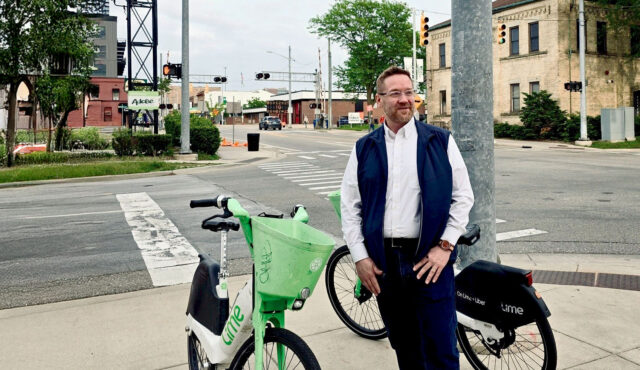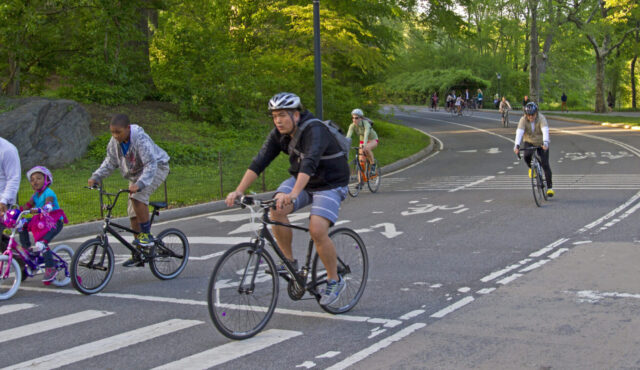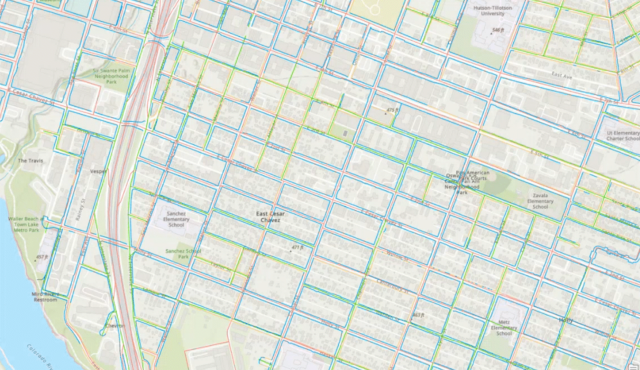
I cannot believe I’ve already been at Toole Design for a whole month! During this month people reached out wondering what my new job titles mean, sending congrats, and sharing surprise that I’ve moved from the nonprofit space to a private consulting firm.
One of the most common questions I’ve been asked is, “How can you keep passionately caring at a consulting firm?” People are wondering if I’m still going to be outspoken. If I’ll still talk about things like equity and race. I get why people think something might change. Some things will. Like everyone, I’m constantly learning and growing and gaining new skills. I’m a mom now, I’m another year older, and the world around me continues to dynamically change. All of this would be true no matter where I worked.
But as to whether I can continue to care as a consultant–I have to! For me, consulting, like any profession, is made up of people. It’s not enough to throw up our hands and blame a system when fighting things like institutional racism. People make up these systems. And as people, we have a responsibility to take ownership for our actions. When choosing a firm to join as a consultant, I landed in a place made up of people who care. I’m not under any illusions– this is an imperfect business. But, how you do business matters.
I recently had a conversation with a mentor, who said I was perceived as someone who wanted to “change the system.” My initial reaction was to push back against that perception, because I bristled at any suggestion that wanting to change the system was somehow incompatible with effectively serving our clients. Because I do effectively serve our clients. But that mentor really saw me, and the reality is it is true. I also want to change systems. That’s why I came to Toole Design.
As I was exploring my opportunities, I knew I was looking for a place where I could do work that made an impact with people who shared many of my core values. Often, women and people of color get tagged with this reputation of being “values-driven.” It’s often used as this coded language to suggest that we can’t do good work or run successful organizations. But being values-driven is not something negative that should be used to tag people with a scarlet letter. Instead, being values-driven means having values and being able to hold firm to them as we do our work. To effectively serve our clients, we have to think about the communities involved and the people in those communities who will benefit from the work we do. I care about people and uplifting the struggles of those who are often ignored. I’d argue that’s what everyone should care about in the transportation profession–no matter what part of the sector we’re in.
Jennifer Toole has built a woman-led company with nearly four times our industry average for the number of women in technical positions. She is already changing the system. We certainly have a long way to go in other aspects of our work, but I wouldn’t be true to myself if I wasn’t part of pushing to ensure that we keep changing the system. That includes who we hire and the kind of work we do. Whether it’s an APBP webinar on low-stress networks or the reconfiguration of a street or a community design and engagement process–we are changing systems. We are questioning the way people think about our work, our streets, and our communities. Our goal should be to make things better. That means challenging the status quo and making change.
Plus, if I’m honest, I don’t have the privilege of not trying to change systems. Many of the systems we encounter in this profession weren’t built for me. Rather they were built to keep me and people like me on the outside looking in. I experience that when biking or taking public transit. I even experienced it when looking for a job. If I was a person not interested in changing systems, I would not be in this profession.
It hasn’t been lost on me that most of my time at Toole Design has overlapped with Black History Month. Transportation and the way we plan our communities have always been civil rights issues, used as tools to segregate and keep certain groups of people out. But they can also be tools to bring people together and connect us.
That’s why this work is so important. That’s why, whether you’re an advocate, a bureaucrat, an elected official, or even a consultant–you must care. People are depending on us to do this work with great care and compassion. People are depending on us to be thoughtful about the past and look creatively and equitably to the future.
I’m still me. I am a consultant at Toole Design. I care about people and how my work impacts their ability to move freely and pursue equity, opportunities, and justice. If you’re in this profession, I hope you do too.


